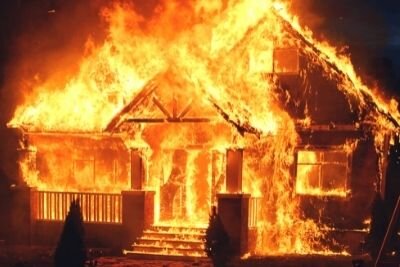Tips for Preventing Damaging House Fires
A house fire, no matter what size it may be, is one of most homeowners’ worst nightmares. The damage that even a small fire can cause can add up quickly when it comes to repair costs. While we can’t control everything in regards to keeping our homes safe from fire, there are some things we do have control over. In this article, we’ll give you a few tips for preventing damaging house fires so you can sleep a little easier knowing your home is a little bit safer.
Regularly Inspect Fire Detection
Fast reaction times can mean the difference between a small problem and a huge disaster. That’s why any and all fire detection equipment must be in good condition and ready to go. You should change the batteries in your smoke detector regularly and inspect any home sprinkler system you might have.
Keep Tabs on Heating Sources
Anything in your home that generates heat could start a fire. You should always check on your heater’s filters before you plan to use it as these can catch fire if they are too dirty. Heat sources, such as radiators and space heaters, need to have nothing flammable near them that could catch fire from the radiating heat.
Be Careful With Appliances
Appliances such as your stove, oven, and dryer all pose a risk when it comes to fire. You should never leave your stove or oven unattended for long periods of time. Fires can start, and run out of control, in the blink of an eye, so you always need to be ready. Make sure you always clean out your dryer’s lint catcher before every load of laundry. That lint can easily catch fire if you let it build up.
Watch Cord Placement
Even the most insulated cords you can buy may still run hot, especially if they are in use for excessively long periods of time. A good tip for preventing house fires is to never put anything flammable close to a cord or power outlet. You also want to inspect cords that move a lot, as you don’t want to continue using a cord that has begun to fray.
Always Have Fire Extinguishers
This pointer should go without saying, but many homeowners don’t own fire extinguishers even though they can be lifesavers. You should instruct everyone in your home about where the fire extinguishers are and how to use them, should the need arise. A fire extinguisher could mean the difference between a momentary flame and an outright house fire.


